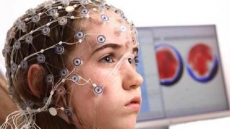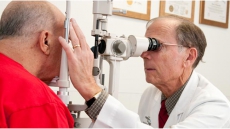Nearly five billion people, that is about half the world's population, are poised to become myopic or short-sighted by the end of 2050, indicates a study.
Also called nearsightedness, myopia is a vision condition in which people can see clearly the objects that are close to eyes but objects far away appear to be blurred to the sight.
Acting like a silent epidemic, myopia is all set to become the leading cause of permanent blindness globally
With up to one billion people at an increased risk of blindness, myopia is all set to become the leading cause of permanent blindness globally.
Further, with the findings suggesting that the US will have 260 million myopes by 2050, up from the 90 million in 2000, and Canada will see 66 million high myopes by 2050, up from the 11 million in 2000, the vision loss from high myopia is expected to increase seven-fold from 2000 to 2050.
The rapid increase in the prevalence of myopia globally is attributed to "environmental factors, lifestyle changes resulting from a combination of decreased time outdoors and increased near work activities, among other factors", said the researchers.
Parents need to ensure that the children's eyes are regularly checked, improve time outdoors and moderate time on near based activities, including electronic devices.
Also, comprehensive eye care services is needed to check the rapid increase in high myopes, along with the development of treatments to control the progression of myopia and prevent people from becoming highly myopic, the researchers suggested in the study published in the journal Ophthalmology revealed.
"We also need to ensure our children receive a regular eye examination from an optometrist or ophthalmologist, preferably each year, so that preventative strategies can be employed if they are at risk," said Kovin Naidoo, a professor at the University of New South Wales in Australia.





